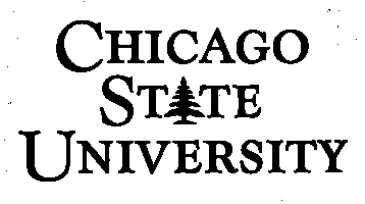Chicago State Tries To Stem Bad Press With Media Policy
By Prescott Carlson in News on Apr 6, 2012 9:40PM
 Chicago State University has had a string of bad press in recent years. With reports about its terrible graduation rate, ongoing mishandling of finances, and most recently, an audit revealing the school had lost track of $3.8 million in equipment, Chicago State has had some serious public relations issues.
Chicago State University has had a string of bad press in recent years. With reports about its terrible graduation rate, ongoing mishandling of finances, and most recently, an audit revealing the school had lost track of $3.8 million in equipment, Chicago State has had some serious public relations issues.
Now CSU seems to be trying to cut off those negative news stories by handing down a new media policy that it hopes will keep everybody's mouth shut.
According to the Chicago Tribune, Sabrina Land, director of marketing and communications at the university, ordered all faculty and staff not to talk to the press, and that only "authorized university representatives" were allowed to disseminate information to the media. But Land's definition is a broad one, which includes -- but is not limited to -- "media interviews, crisis communications, acquisitions, external newsletters, social media, conference/seminar/roundtable/speaking opportunities/white papers/opinion pieces," all have to first be approved by the CSU division of public relations.
Land's email said that any faculty or staff that violated the new policy could face "possible termination" as well as putting the employee at risk of "civil and/or criminal liability."
Probably not coincidentally, the email order went out the same day the report about the missing equipment hit the newswires.
Senior vice president at the Foundation for Individual Rights in Education, Robert Shibley, told the Trib that the policy could even "restrict professors from participating in interviews about their research." Cary Nelson, president of the American Association of University Professors called the policy "an obscenity and absurdity."
It's not the first time Chicago State has taken heat over its views on First Amendment rights. In March, a U.S. District Court ordered the school to reinstate a student media adviser, ruling that his termination over critical articles written about the university in the campus newsletter was a First Amendment violation.